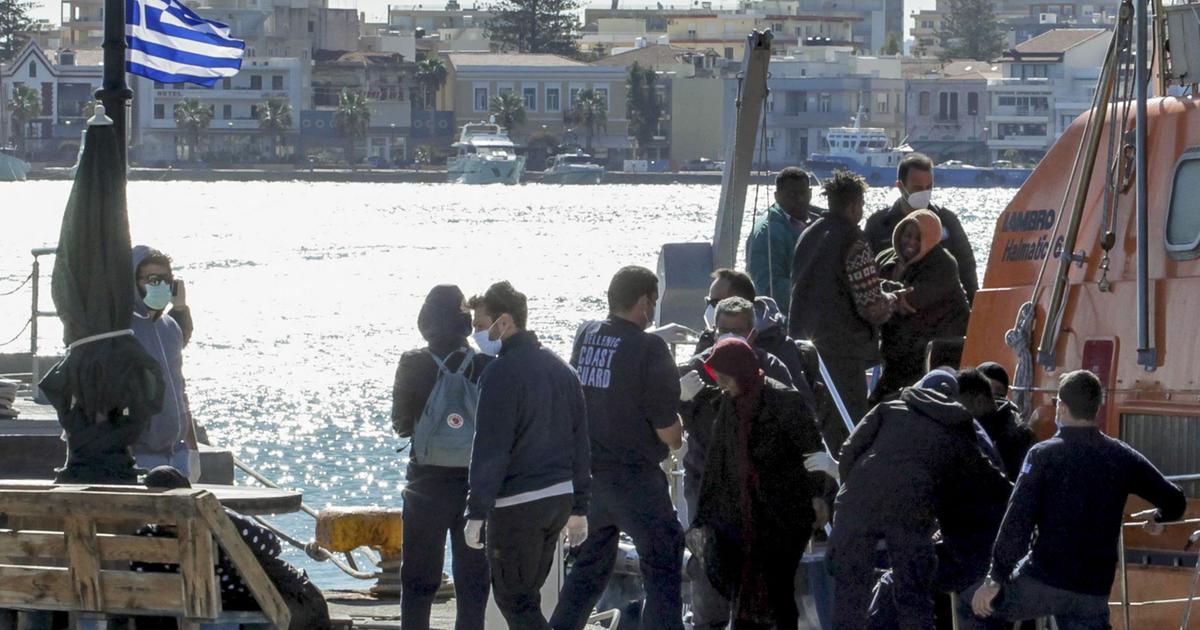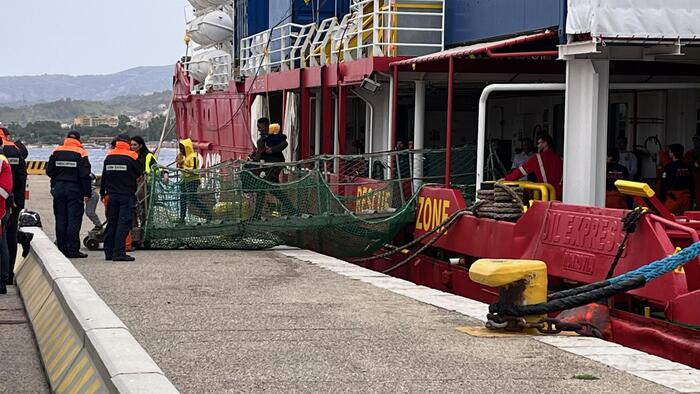Who will save the refugees who are in distress on the Mediterranean Sea? And if someone saves her, where do you take her? To answer these questions, around 200 representatives of the main organizations currently active on the Mediterranean, including NATO, UN, EU, NGOs and the Libyan Coast Guard, met on Wednesday and Thursday. The EU mission EUNAVFOR MED (European Union Naval Force - Mediterranean) had invited to the two-day "Shared Awareness and De-confliction" forum in Rome. It was the first meeting of the forces in the post-Salvini era.
For one and a half years, the former Italian Home Secretary of the EU had almost single-handedly dictated the Mediterranean policy until he was deposed in August. Last Monday, the interior ministers of Germany, Italy, Malta and France had agreed on a "temporary emergency mechanism" for the distribution of refugees. How to save in the future - they did not agree.
Especially the NGOs have been calling for a long time for a political solution for people who flee across the Mediterranean Sea and are at risk on the high seas with often overcrowded and unfit boats. Salvini's de facto blockade has left only a dozen rescue vessels still active on the Mediterranean in 2015, leaving only three.
The EU's main partner in the Mediterranean is now different: "Without the Libyan Coast Guard, people would drown in the Mediterranean, and the number of deaths has been significantly reduced since 2017," says Vice-Admiral Enrico Credendino, who said he would use EUNAVFOR MED passes. So far 500 Libyans have trained the initiative as coast guards, 37,000 people have already rescued them since 2017. What Credendino does not say: The sheer number of deaths may have decreased, but the death toll increased massively over the same period: In 2017, one in every 38 people fleeing Libya across the Mediterranean was one of 14 in 2018.
Unlike NGO ships, the Libyan Coast Guard brings people back to North Africa - not Italy or Malta. More than half of the 13,000 people who attempted to travel from Libya to Europe via the Mediterranean in 2019 and were rescued were evacuated to Libya, according to the International Organization for Migration (IOM).
"Libya can not be a safe haven"
Internationally, the use of the Libyans is therefore massively in the criticism. "Libya can not be a safe haven for repatriating refugees," says Jean Paul Cavalieri, head of the UNHCR mission in Libya. "The conditions in the camps are terrible, and the country is in an armed conflict."
Those who want to stem migration across the Mediterranean need peace in Libya. Perhaps that is the minimum consensus of the conference participants in Rome.
"The war is getting dirtier and we're seeing more and more violations of human rights from both sides," says Stephanie T. Williams, who heads the United Nations Mission in Libya (UNSMIL). The Libyan warlord Khalifa Haftar had rekindled the civil war with his attack on Tripoli in early April. "Since then, 120,000 Libyans have been displaced within the country, thousands have fled to Tunisia," says Williams. The EU has meanwhile relocated its diplomatic mission for Libya to Tunisia.
With the escalation of the civil war, the danger and flight pressure for migrants in Libya is also increasing, warns Cavalieri. There are currently 800,000 in Libya and 50,000 have been registered by the United Nations Relief and Works Agency in Libya, of which 5,300 are held in camps.
Where to evacuate?
At least 53 people were killed in an air raid on the Tajoura camp in Tripoli in July. The Libyan government has announced its intention to close down all facilities. The problem: a large part of the total of 20 camps is operated not by government forces, but by allied militias. In addition, a plan is missing where people could be evacuated.
The conference attendees in Rome were therefore at a loss when it came to concrete solutions. Their demands sounded like cries for help to the politicians, hoping to be heard.
"We evacuated 98 people to Italy last week, which is the direct lifeline from Libya to Europe," says Jean Paul Cavalieri. In total, 764 people have been relocated from Libya to Europe and Canada this year. Not enough, says the UNHCR expert.
NGO representatives such as Tamino Böhm of Sea-Watch make more radical statements: "Now that Salvini is gone, let's start a state-run sea rescue mission with a humanitarian mandate - one that excludes people from fleeing back to North Africa."







/cloudfront-eu-central-1.images.arcpublishing.com/prisa/D2BVXS52B5CFFDJ6QIQPKP2QMA.jpg)

